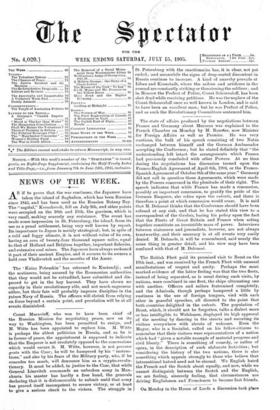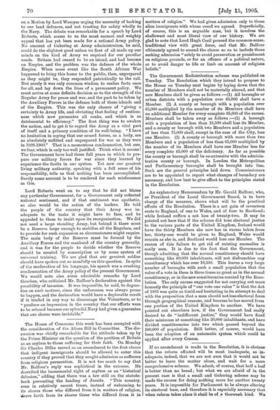on a Motion by Lord Wemyss urging the necessity of
looking to our land defences, and not trusting for safety wholly to the Navy. The debate was remarkable for a speech by Lord Roberts, which seems to us the most earnest and weighty appeal that has yet been made for a rational Army policy.. No amount of tinkering at Army administration, he said, could do the slightest good unless we first of all made up our minds on the kind of Army we required for our peculiar needs. Britain had ceased to be an island, and had become an Empire, and the problem was the defence of the whole Empire. When some event like the South African War happened to bring this home to the public, then, unprepared as they might be, they responded patriotically to the call. But surely it was only common wisdom to realise facts once for all, and lay down the lines of a permanent policy. We must arrive at some definite decision as to the strength of the Regular Army for peace and war, and the part to be taken by the Auxiliary Forces in the defence both of these islands and of the Empire. This was the only chance of "giving a certainty to Army life, and obviating that feeling of restless- ness which now permeates all ranks, and which is so detrimental to efficiency." The first thing was to awaken the nation, and to get it to regard the Army as a vital part of itself and a primary condition of its well-being. "I have no hesitation in saying that our armed forces, as a body, are as absolutely unfitted and unprepared for war as they were in 1899-1900." That is a momentous condemnation, but one, we fear, which is only too well justified. Think what it means ! The Government have had three full years in which to pre- pare our military forces for war since they learned by experience the faults in our system. Yet now our greatest living military authority, speaking with a full sense of his responsibility, tells us that nothing has been accomplished. Surely some account is to be rendered for such misfeasance as this.







































 Previous page
Previous page